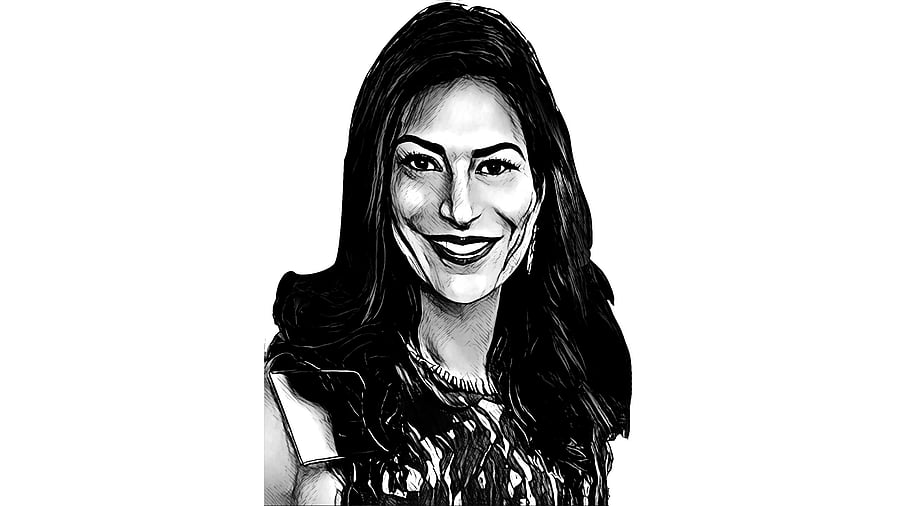
Shaifali Sandhya is an international psychologist, former professor, and writer on culture, cosmopolitanism, and global affairs.
Credit: DH Illustration
Reflecting on his old journal entry, Yvon Chouinard, founder of Patagonia, reread, “My gear is helping people destroy the places I love.” That realisation sparked Patagonia’s transfer of $3 billion in equity to a climate-action trust, a decision driven by deep introspection. Former New Zealand Prime Minister Jacinda Ardern recently revealed her resignation stemmed not from exhaustion, as many believed, but from an inner reckoning: Am I still the leader I believe I want to be to do this job well?
I recall my conversation with then-Prince Charles at Cambridge. As a student, he shared that he struggled with boiling eggs. Laughing off this mishap, the future king disarmed hierarchy, illustrating candour in a culture that prizes infallibility.
We learn from reflecting on experience, John Dewey reminded us a 100 years ago, but not from experience alone. Yet, in a culture where speed is perceived as strength, meaningful reflection is increasingly rare. Outrage eclipses insight.
Modern society rewards performance and neglects authenticity, resulting in moral and emotional emptiness, despite professional success. And you may wonder, humble self-reflection aside, King Charles may be employing a British tactic used by those in power to put others at ease. So, what distinguishes introspection from performative humility? And, does that distinction matter?
True reflection involves wrestling with discomfort and questioning assumptions; it lowers anxiety and sharpens decision-making. This practice has ancient roots. The Bhagavad Gita frames Arjuna’s battlefield paralysis as a crisis of moral inquiry.
Many high-profile leaders have partaken in this demanding ritual of introspection, humbling their egos by acknowledging fallibility. Aristotle termed this balance of deliberation and decisiveness phronesis. Lincoln wrote unreleased letters to temper his rage; Gandhi filled notebooks probing his motives. Churchill, a resolute leader who navigated Britain through challenging times, grappled with depression and exchanged letters with Chaplin, both voicing their inner struggles. Self-examination activates the brain’s error-monitoring network, facilitating learning and growth.
However, not all mental churn constitutes fruitful reflection. Loud politics arises from brash folks reaching erroneous conclusions about how to act, while seemingly correct actions may come from those rigidly adhering to learned behaviours without true reflection.
Ruminators are not soul-searchers. They brood over the same thoughts, reinforce harmful distortions, and worsen their issues. Interactions with some people may feel draining or superficial. They may project their insecurities onto others, deflect, or double down when challenged, avoiding reflection to protect their fragile self-worth. Speaking to them can feel like you’re talking to glass – superficial and lacking depth. If you point out a flaw, they may insist that it is you who is imagining things. The consequences of self-reflection – or its absence – ripple beyond the personal.
Individuals who revise their internal narratives tend to show higher civic engagement and stronger ethical behaviour. Employees who regularly reflect, a Harvard Bocconi study finds, perform better.
Trust in leaders is at its historic low globally. In this scenario, reflection is the most effective strategy leaders can use. According to the 2025 Edelman Trust Barometer, Lokniti-CSDS Youth, and Pew Research, about two-thirds of people around the world fear and mistrust their leaders. But Gallup’s State of the Global Workplace report shows that when leaders admit mistakes and explain course corrections, trust in them rises dramatically.
Altogether, the data reveals, a leader’s willingness to interrogate themselves, not ideological purity, determines public trust. A study of 201,000 participants found that people care about how leaders make decisions, not what decisions. Those masterful storytellers who cast India’s rise as inseparable from their own – tracing a path from railway platforms to the world stage – might ask themselves rarer questions: What did I misunderstand? And what, in truth, have I learned?
Without reflection, democracy becomes reactive, vulnerable to disinformation, jeopardising public safety. The 2025 Democracy Report from the University of Gothenburg warns that unchecked information flows in India are eroding democratic norms, skewing democracy norms globally.
In a reaction-driven world obsessed with immediacy, the quietest act remains the most radical: listening within – and proving, through consistent and correctable action, that we have truly heard ourselves. Without disciplined self-reflection, learning stalls and relationships suffer; with it, people and institutions stay alive to reality.
How do we make reflection habitual? Name the data. Begin with evidence – whether a journal entry, a quarterly metric, or a gut feeling – that something is off. Ambiguity resists accountability. Build a pause ritual. Ten-minute debriefs, weekly journaling, or asking “what am I missing?” can interrupt runaway certainty. Act on accrued insight. Even when it’s uncomfortable and costly.
By the time you read this, I’ll be back at Cambridge among many still trying to master, metaphorically, life’s simple art of boiling an egg. Let’s hope we have begun to understand: our inward gaze isn’t weakness, it is the awakening of personal growth.